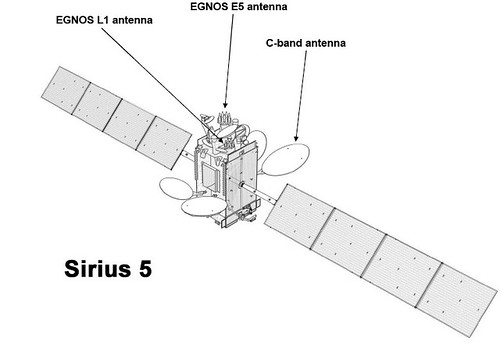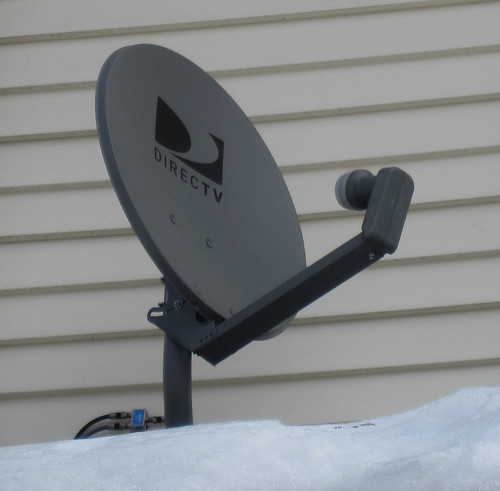Blog That Hosted Payload
Friday, February 11th, 2011

Interested in government payloads hosted by commercial spacecraft? There’s a blog for that! That’s right, rocket scientists: Space News and Intelsat General put together a Drupal-based blog entitled "Hosted Payloads" last week. Good idea, but will you have enough content to sustain it?

Satellite operators Intelsat and SES have been talking about it for years, so why not blog about it? Cisco’s IRIS is up, and CHIRP will be going up this year, with a second EGNOS payload on Sirius-5 to follow. Brilliant idea to get Intelsat to sponsor the "microsite."
The timing is actually pretty good. Today’s Wall Street Journal has a piece on space budgets and actually gives some ink to hosted payloads, with Intelsat saying it’s working on three hosted payloads…
Intelsat and other companies have also joined with some Pentagon offices to champion putting more "piggyback" military payloads aboard privately funded and operated satellites.
Such arrangements offer expanded surveillance and communication capabilities significantly faster than, and at a fraction of the cost of, building and launching military satellites. Intelsat has three such agreements in place with the U.S. government and is discussing several others, industry officials said.
What I find peculiar is the Pentagon is talking to two Luxembourg-based companies for hosted payloads. Why not talk to the home boys at U.S. Space LLC? I’d rather deal with Telesat, as they fly a WAAS payload on Anik F1R.
To really get a taste of the details and possibilities of hosted payloads, you should read the Jon Glass story in GeoPlace.com. Excellent summary…
"It’s the speed and cost efficiency that is really driving the government’s interest in this," adds Jeff Foust, senior analyst with Futron Corp., a technology-management consulting firm that helped organize several government/industry workshops on hosted payloads. "There’s a steady stream of opportunities for hosted payloads, because you have 20 to 25 commercial GEO satellites being ordered and launched every year, plus you have special opportunities such as Iridium NEXT that have a much larger number of satellites in a global system."
Because hosted payloads are relatively new, developing a set of policies and procedures that make it easier for government agencies and the private sector to partner on projects is a challenge. This includes developing mechanisms that regulate contracts and pricing as well as enable federal agencies to take advantage of available opportunities. Because of existing regulations and bureaucratic barriers, government agencies can find it difficult to move at the same speed as the private sector.
A key purpose of hosted-payload workshops has been to give industry and government officials a forum to identify potential barriers and begin to develop solutions. The important thing, notes Foust, is that with the new U.S. space policy, government supporters of hosted payloads now have the official backing of the administration to pursue opportunities.
"It’s a trite phrase, but the use of hosted payloads has the potential to be a win-win," adds Foust. "It’s an opportunity for the industry to maximize potential revenue by making use of satellite capacity that otherwise might go unused. For the government side, it provides a greater degree of flexibility to get important payloads up faster and less expensively than the traditional way of doing business. There’s a great potential here to do more with less and provide some real savings to the taxpayers."
Oh, and SES WorldSkies has a blog now, too. Good luck commenting on that one. SEO, anyone?









